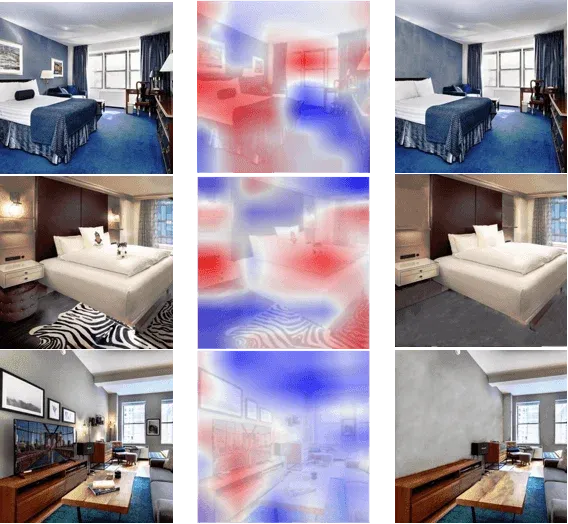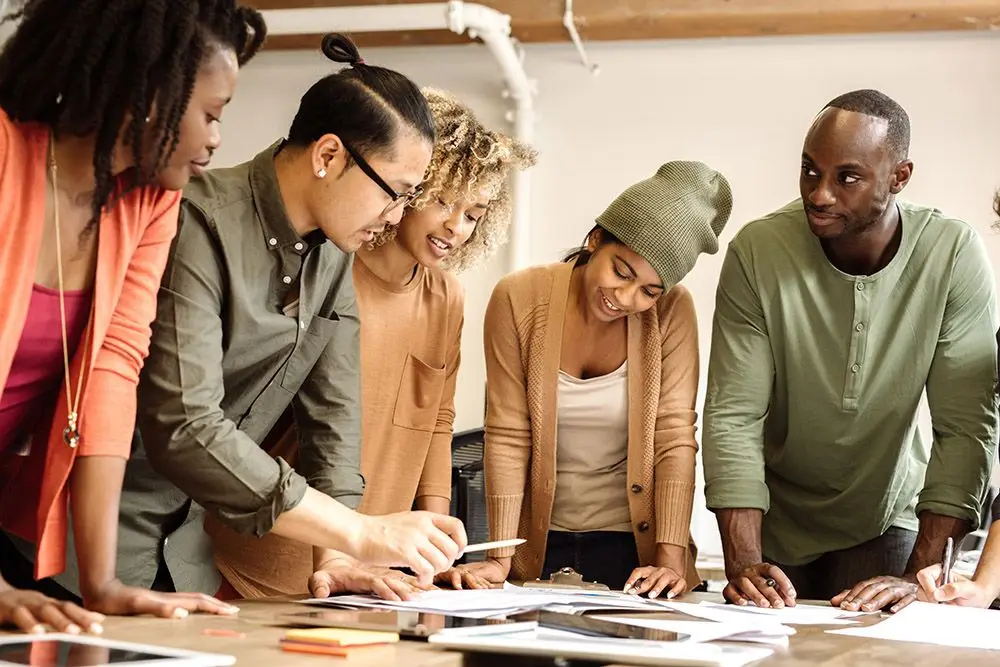GEMExpert: On Airbnb, visual uniqueness boost rentals
A property listed on Airbnb with visual uniqueness photos is more likely to be rented. That’s the conclusion of three researchers, including Charis Li from Grenoble Ecole de Management. They designed a machine learning model that evaluates the visual uniqueness in the same way a human observer would, and validated it over one year on 14,000 properties. The verdict: originality is good for business!
Interview with Charis Li, Assistant Professor at Grenoble Ecole de Management (GEM)
 How do you define the “visual uniqueness” of a photo, and why did you decide to focus on this aspect?
How do you define the “visual uniqueness” of a photo, and why did you decide to focus on this aspect?
Charis Li: For us, a photo presents the characteristics of visual uniqueness when it stands out and spontaneously captures human attention, for various reasons: colors, contrasts, textures, arrangement of furniture and objects… I chose this theme because Airbnb offers an incredible diversity of properties—its number one differentiator compared to hotels. Photos showcase this diversity. They had already been studied from several angles, but not from the perspective of visual uniqueness.
So the idea was to develop a model that reproduces human judgment?
C. L.: Exactly. We drew on insights from cognitive psychology to mimic how individuals discover these images: they don’t have prior expectations given the diversity of properties, they perceive the photos as a whole rather than in detail, they compare them and react to those whose originality stands out. We trained the model on 480,000 property photos. Then we confirmed that it replicated human judgment through three studies, involving a total of 900 participants.
Do you provide objective data to quantify visual uniqueness?
C. L.: That’s the strength of the model. It assigns each photo an “visual uniqueness score” and creates a visual map showing which parts of the image contribute most to that score—positively or negatively. This gives property owners a way to make their photos more or less original.

The left panels are original images, the middle are layered with machine learning predicted uniqueness heatmap (the darker the red the greater contribution that area has to uniqueness).
Then the right-side panel are images with those highlighted areas manipulated (in this case, object removed), and uniqueness decreased.
You also evaluated the impact of originality on rental volume…
C. L.: Yes, we analyzed 14,000 Airbnb properties in New York, collecting 13 months of data: displayed photos, photo changes, and their impact on bookings. The result: for the same property, even a modest increase in the originality score of photos can generate up to an additional $10,000 per year! However, photos that are “too” original don’t perform well: they come across as quirky, and customers hesitate—unless they are reassured by excellent reviews and a very high response rate from the host.
What are the potential next steps for your work?
C. L.: We provide platform managers with a tool to make listings more attractive and grow their business: they just need to retrain our model, originally designed for Airbnb. We also open up a long-term perspective: conducting reliable consumer research without human participants. Finally, on a personal note, I’m proud to have co-authored this article with two other women. To this day, AI remains a very male-dominated field—we need to claim our place in it.
▶ ▶ Innovation snapshot
Charis Li conducted her scientific research in our Innovation Lab – Biz Lab – on the GEM Labs campus using Tobii glasses, a portable eye tracker that records detailed real-time data with scientific accuracy. Our Innovation Labs are available to students, faculty, and partners.
Publication
Xiaohang (Flora) Feng, Charis X. Li, Shunyuan Zhang, “Visual Uniqueness in Peer-to-Peer Marketplaces: Machine Learning Model Development, Validation, and Application”, Journal of Consumer Research, 2025, ucaf021
Bio snapchot
Charis Li is an Assistant Professor in the “Consumer Behavior” research team at Grenoble Ecole de Management, where she also directs the Doctorate of Business Administration (DBA) program. Her research focuses on the influence of identity, generosity, and visual processing in domains such as the sharing economy, sustainable consumption, and social networks. She is also interested in the implications of innovative teaching methods and policies in management education.
Related GEM Programs

▶ Doctorate of Business Administration (DBA)
▶ PhD in Business Administration

